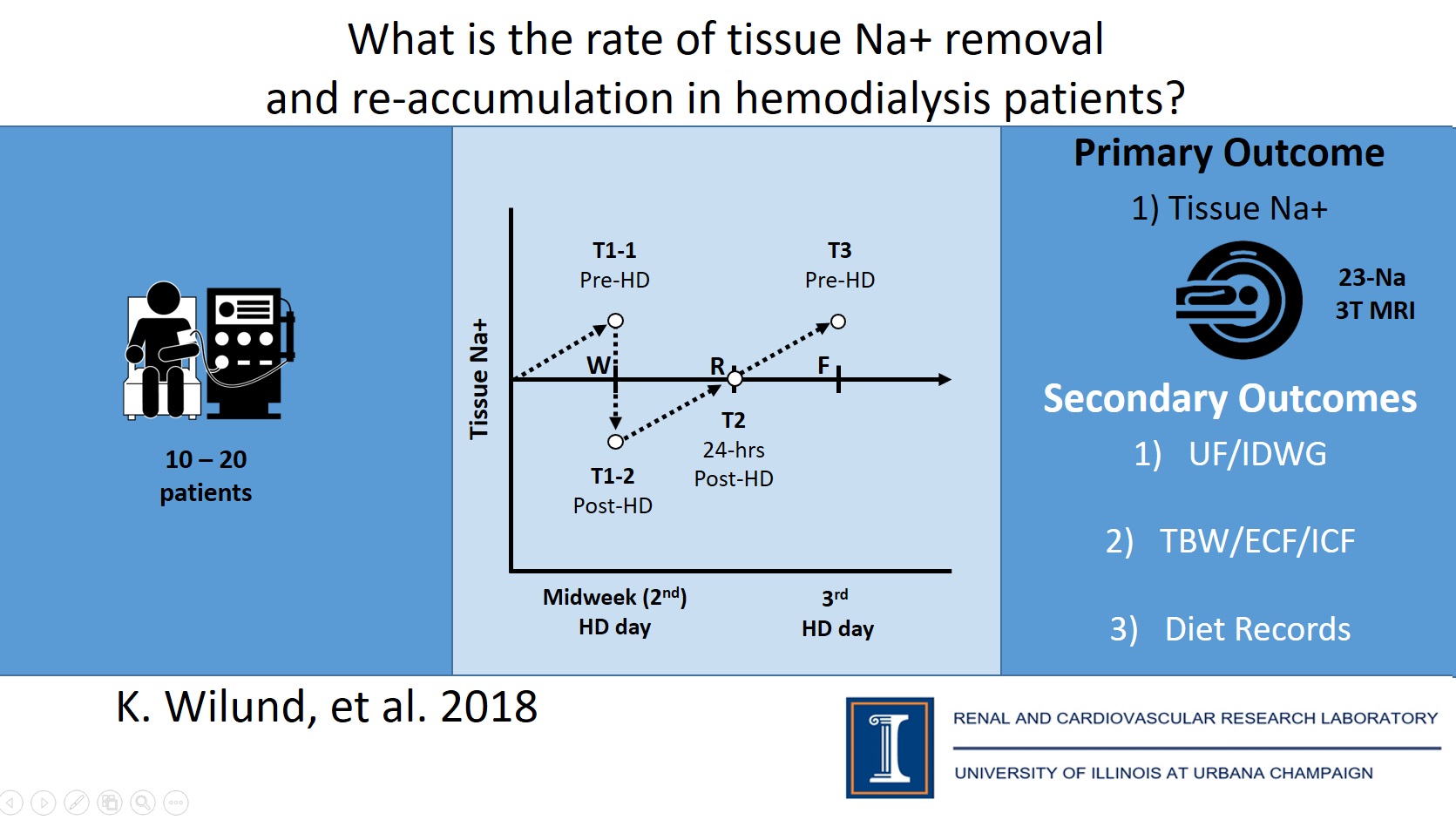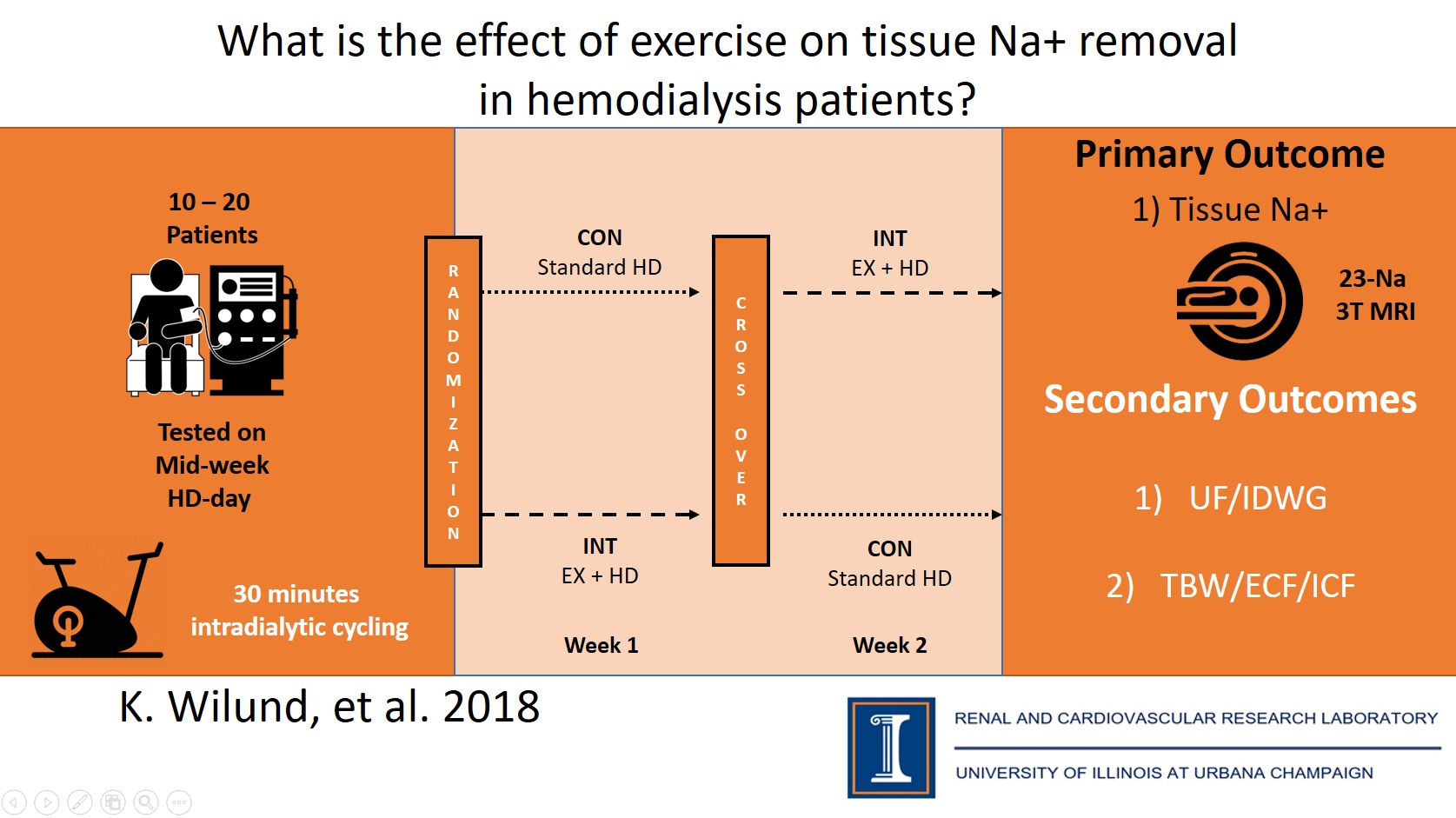Patients with kidney disease rely on hemodialysis to balance the fluid in their bodies. Research has shown chronic overhydration can have negative consequences on the heart and arteries. Sodium intake between hemodialysis treatments is one of the main determinants of fluid gains that result in overhydration.

To find out if hemodialysis removes sodium from skin and muscle as well as the blood, participants will undergo an MRI specially designed to detect sodium, not the hydrogen that is normally tracked by traditional MRI machines. Fluid status and cardiovascular function will also be tested before and after hemodialysis.
 This will provide researchers with valuable information about the ability of hemodialysis to remove excess salt from the tissues, not just the blood. In turn, the results of this study will help to develop further interventions to decrease and prevent overhydration in hemodialysis patients. Doing the study also opens up an educational opportunity to increase awareness in both patients and the health care team.
This will provide researchers with valuable information about the ability of hemodialysis to remove excess salt from the tissues, not just the blood. In turn, the results of this study will help to develop further interventions to decrease and prevent overhydration in hemodialysis patients. Doing the study also opens up an educational opportunity to increase awareness in both patients and the health care team.

